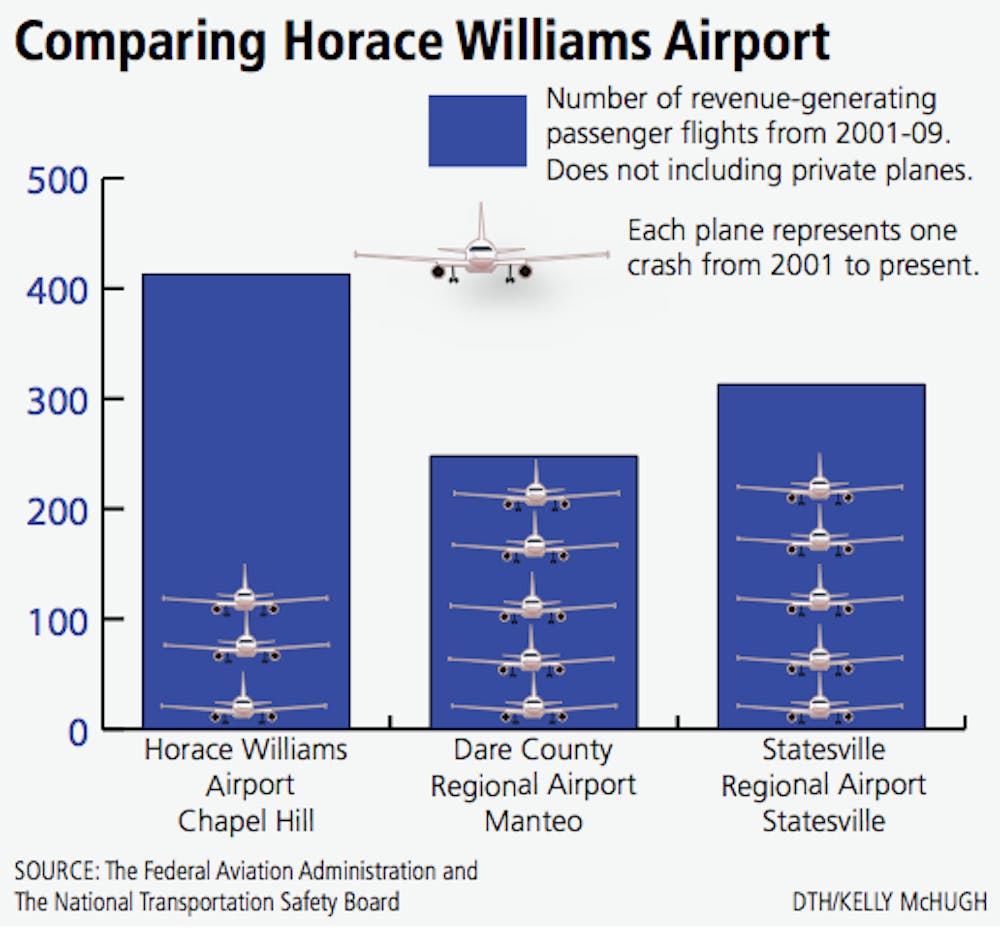A tragic plane crash that killed one and sent two to the hospital forced the town to look at the safety of the University’s Horace Williams Airport.
But officials urge that any flight safety concern resulting from the crash is unfounded, both on the scale of flying as a whole and of the individual airport.
Carolyn Elfland, associate vice chancellor for campus services, works with the airport.
She said that while the National Transportation Safety Board has not yet released a probable cause report, a board official on the scene told her that the crash was not related to the airport itself.
Since general aviation airports do not keep track of incoming and outgoing flights, it is difficult to measure and compare number of flights per airport. Chapel Hill has, though, comparatively fewer crashes per revenue-based flights according to records from the Safety Board and the Federal Aviation Administration.
But Elfland said these numbers might not mean much, as the majority of flights in Horace Williams Airport are not commercial.
Crashes generate fear among passengers because they typically involve spectacularity and catastrophe, but in reality, aviation is possibly the safest mode of transportation, said John Kasarda, a professor at UNC’s Kenan-Flagler Business School and an expert on the aviation industry.
“What happens when there’s a plane accident, especially if numerous people are killed? It’s national news,” he said. “But thousands of people die on the highway every week, and it’s business as usual.”
Walter Mack, a Chapel Hill resident for 12 years, goes fairly frequently to the airport because his son-in-law, a pilot, uses it to fly in from Philadelphia. He said that while it doesn’t affect safety standards, he has seen the quality of the airport decline considerably.




